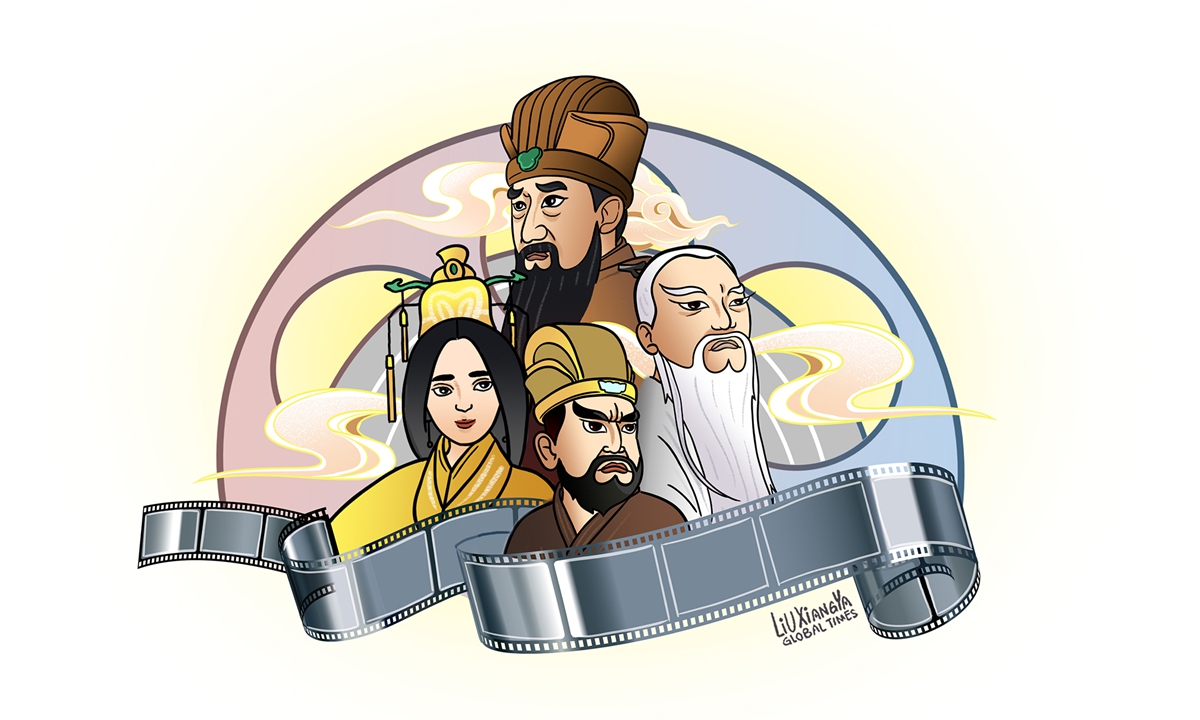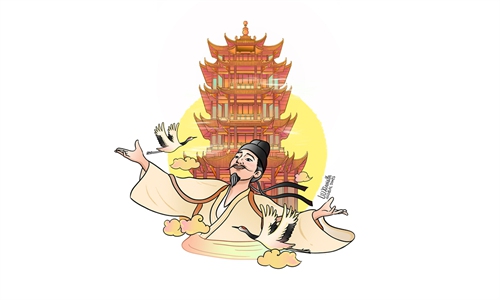ARTS / ART
Rewards, challenges of bringing ancient mythology to the screen

Illustration: Liu Xiangya/Global Times
The silver screen in China has been set ablaze with the highly-anticipated film Creation of the Gods: Kingdom of Storms. At its start lies the origin of this mesmerizing saga - a vixen with mystic powers.The tale, based on centuries-old Chinese literature, weaves a tapestry of enthralling characters - an aged, lowly fisherman who unexpectedly rises to become the revered leader of both mortals and gods (Jiang Ziya); a lotus reincarnated as a child who can slay dragons with his bare hands, yet cannot deal with his own father (Ne Zha); a three-eyed deity, championing a cosmic rebellion to save his mother at odds with the whole universe (Yang Jian).
There is also a flying demon adopted by a human, a king who faces severe consequences for his desire toward female deities, and a giant wielding a lute as a weapon… The list can just go on and on.
These mythological figures have been entrenched in the bedtime stories of generations of Chinese children, serving as vivid and allegorical footnotes for their unfolding lives.
The stories have etched an indelible mark on their lives, perpetuating through each retelling to the next generation.
Undoubtedly, a nation's myths, beyond being collective memories, also serve as a reservoir of symbolic resources for their cognition and expression.
Among the pantheon of characters mentioned above, a constellation of mythological figures has ascended to cinematic stardom within China's film industry in recent years.
These characters emerge from the mythological cosmos of Investiture of the Gods, a novel that forms a revered triumvirate with Journey to the West, and Classic of Mountains and Seas.
What sets the narrative of film Creation of The Gods: Kingdom of Storms apart is its provision of not merely fragmented stories but an entire cosmic framework, constituting what is termed a big IP within the Chinese cultural landscape.
Akin to the epic scale of The Lord of the Rings series, the movie unfolds a grand narrative, reaping immense rewards and wielding significant influence through the silver screen.
As evident from the title, it starts a new mythological universe, poised to amass a dedicated following.
For modern nations, the task of narrating their ancient mythological tales through advanced technological means has always been a cultural responsibility.
This undertaking demands the ability to construct a bridge, or rather, a shared realm of significance between tradition and modernity, ensuring the people witness an ample panorama.
On one hand, it necessitates the art of storytelling in a manner distinct enough from other nations to establish a sense that it is irreplaceable.
Undoubtedly, this is no easy feat. The cinematic adaptation of Chinese mythological tales faces challenges as colossal as the opportunities it presents.
On one hand, unlike original works like The Lord of the Rings, mythical tales encounter the fastidious scrutiny of audiences.
As previously mentioned, each character and plot has been dissected and re-imagined countless times by viewers, akin to dozens of Hamlet dilemmas converging in a single film.
On the other hand, the demand for novelty looms large.
Distinguished from comforting bedtime stories, modern audiences yearn for genuine innovations in both thought and aesthetics, especially after being exposed to numerous blockbuster Hollywood productions.
The appetite for true originality prevails, as audiences seek to feast on fresh and visionary cinematic experiences rather than a conglomeration of derivative works.
This formidable challenge remains an enduring quest - a destiny that storytellers must confront head-on.
Yet, we bear witness to a continuous tapestry of stories, once veiled within the depths of the national memory, now unfurling and passing down.
The author is a lecturer of Hunan University. life@globaltimes.com.cn


